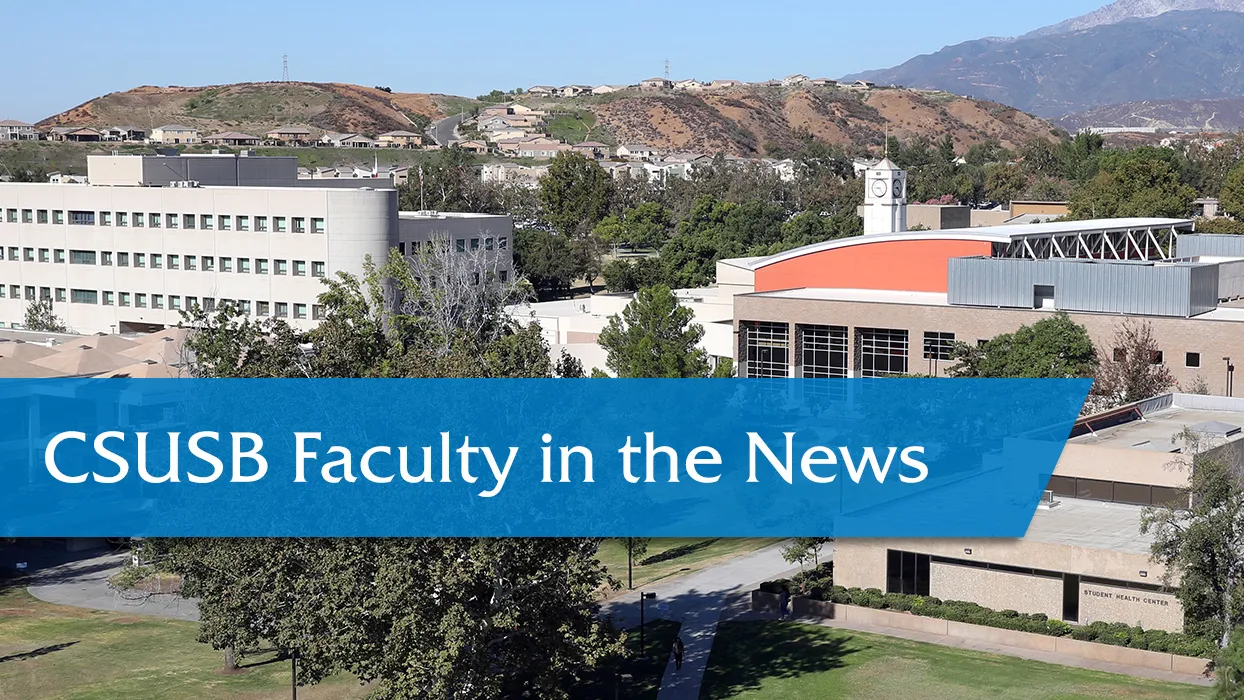
NOTE: Faculty, if you are interviewed and quoted by news media, or if your work has been cited, and you have an online link to the article or video, please let us know. Contact us at news@csusb.edu.
CSUSB professor discusses impact of videos on social media that document hate incidentsThe Inlander (Spokane, Wash.)July 26, 2018 Brian Levin, director of the Center for the study of Hate and Extremism at California State University, San Bernardino, was interviewed for an article about the aftermath of a hate incident in Idaho involving a church youth group that had stopped at a fast food restaurant for ice cream. Idaho resident Richard Sovenski has been charged in the incident after he allegedly sucker punched the church staff member, Jose Cisneros. Part the incident was captured on a video that went viral on social media. The news report says, “It takes Levin several seconds to scroll through his Twitter feed to find the video of Sovenski. “He scrolls past a video of a white Detroit business owner who spits on a black man; past the photo of the now former Clark County Sheriff's deputy who was fired after posting a photo wearing a sweatshirt with a Proud Boys logo, a group of conservative nationalists; and past the video of a white woman telling a mixed race family to ‘get out of Berkeley.’ “Levin has studied hate and bigotry for decades. In the past year, he's noticed an increase in these types of videos, which spread like wildfire on the internet. “Specifically, for Levin the flashpoint was the white supremacist rally in Charlottesville, Virginia, where a protester was killed. “Levin sees value in the videos' efficiency at exposing this kind of behavior. But he worries that the quick, breaking news posts might leave out crucial context, such as the mental capacity of those involved. And the knee-jerk reaction to publicly shame individuals may destroy an opportunity to reverse hateful thinking. '‘Shaming is not the same as rehabilitating,’ he says. ‘I think that we have to look to experts to solve the polarization in this country, who go beyond the first steps of impulsive shaming into something more holistic.’ “Statistically, Levin's analysis of police data shows that hate crimes in the 10 largest U.S. cities increased for the fourth consecutive year in 2017. The 12 percent increase, a total of 1,038 hate crimes, is the highest in more than a decade.” Read the complete article at “How a viral video of a Hayden man's racist tirade spread across a community and the country.”
Impact of anti-Muslim rhetoric in politics discussed by CSUSB professorBuzz Feed NewsJuly 25, 2018 Brian Levin, director of the Center for the Study of Hate and Extremism at Cal State San Bernardino, is interviewed for an article that reported on state and local Republican politicians and officials publicly attacking Islam in 49 states since 2015, typically with impunity, according to a BuzzFeed News analysis. Some elected officials shared hate-filled social media posts urging violence against Muslims, while others used subtler, loaded language to smear Islam as they opposed mosque-building projects or wrote bills aimed at what they portrayed as the threat of Sharia. The article cited a study indicating that anti-Muslim rhetoric appeared to increase during the 2016 presidential election. Those findings Brian Levin, who studied the link between the hostile political rhetoric and the increase in hate crimes targeting Muslims. He said presidential election years typically show an increase in hate crimes, some spikes occurred after bombings, and the numbers sometimes rise because of local disputes such as mosque-building projects or an influx of refugees. But even with those caveats, he said, it’s clear political speech influences the numbers. When former president George W. Bush publicly defended Islam in the immediate aftermath of 9/11, hate crimes dropped, Levin said. And when Trump proposed a “Muslim ban,” Levin said, “we saw a precipitous increase.” Read the complete article at “State and local Republican officials have been bashing Muslims. We counted.”
These new clips and others may be found at “In the Headlines” on the Inside CSUSB website.